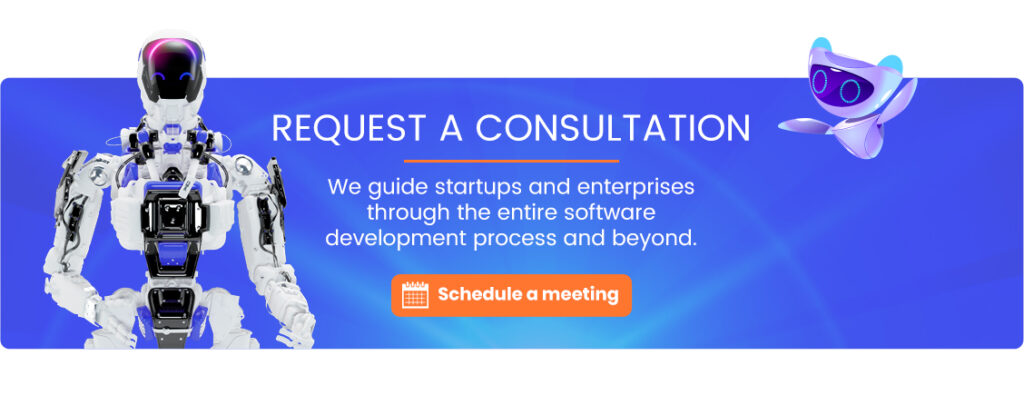In recent years, there have been tremendous advancements in the field of using natural language processing technology (NLP), particularly in healthcare. Artificial intelligence (AI) and machine learning algorithms have enabled healthcare professionals to analyze vast amounts of patient data, leading to more accurate diagnoses, personalized therapy, and better patient outcomes. In this article, we will explore the latest advances in NLP healthcare technology and how it is transforming the way we diagnose, monitor, and personalize therapy for patients.
We will discuss specific use cases, the benefits of NLP, and the future of AI in healthcare.
What Is NLP

Natural Language Processing (NLP) is a subfield of artificial intelligence that focuses on the interaction between computers and humans using natural language. NLP algorithms enable machines to understand human language and derive meaning from it, which can then be used to automate tasks, extract insights, and create new knowledge. The goal of NLP is to make it possible for humans to interact with computers in the same way they interact with other humans, through natural language.
NLP technology is becoming increasingly sophisticated, and it is being used in a variety of applications across industries. In healthcare, for example, NLP is being used to analyze patient records, extract relevant information, and provide insights to physicians. In finance, NLP is being used to analyze news articles and social media to help traders make better investment decisions. In marketing, NLP is being used to analyze customer feedback and do sentiment analysis to improve products and services.
As NLP technology continues to evolve, its potential applications will likely grow, making it an exciting field to watch.
What Is NLP In Healthcare?

In healthcare, Natural Language Processing (NLP) is a technology that has revolutionized the way healthcare professionals analyze and interpret patient data. NLP algorithms enable healthcare providers to analyze vast amounts of unstructured data, such as patient notes, physician’s notes, and other medical records, to derive insights and improve patient outcomes. NLP technology can help healthcare providers identify patterns in patient data that might otherwise be difficult to detect, allowing for more accurate diagnoses and personalized therapy plans.
NLP systems can also be used to automate administrative tasks, such as coding medical records and filling out forms, freeing up more time for healthcare professionals to focus on patient care. With the increasing adoption of electronic health records (EHRs), the use of NLP technology in healthcare is poised to grow exponentially, improving patient outcomes and enhancing the efficiency of healthcare delivery.
How NLP Is Used In Healthcare
NLP, a subfield of artificial intelligence, is used in healthcare to extract and make sense of unstructured patient data, such as physician notes and EHRs. This technology improves patient care, personalizes treatment plans, and streamlines administrative tasks. In this article, we’ll explore some ways NLP is used in healthcare, such as improving EHRs, enhancing diagnosis quality, clinical trials, personalizing healthcare, and protecting patient data.

NLP is used to improve electronic health records (EHRs) by enabling healthcare professionals to extract relevant information from unstructured data, such as patient notes and physician’s notes, and automate administrative tasks like coding and filling out forms.

NLP is used to analyze patient data and help healthcare professionals make more accurate diagnoses. By extracting insights from unstructured data, such clinical documentation such as patient notes and physician’s notes, NLP technology can identify patterns that might otherwise be difficult to detect, leading to more accurate diagnoses and personalized therapy plans.

NLP is used to analyze clinical trial data and help researchers identify patterns and insights that might otherwise be difficult to detect. the NLP system can help identify potential safety issues, monitor adverse events, and streamline data collection, leading to more efficient and effective clinical trials.

NLP is used to personalize healthcare by analyzing patient data and tailoring treatment plans to individual patients. By extracting insights from unstructured and structured data together, such as patient notes and physician’s notes, NLP technology can identify patient-specific factors that might impact treatment outcomes, leading to more personalized therapy plans.

NLP is used to protect patient data by automatically redacting sensitive information in electronic health record, such as names and addresses, from unstructured data like patient notes and physician’s notes. This helps ensure patient privacy and compliance with regulations like HIPAA.
Who Can Benefit From NLP In Healthcare?

Doctors and nurses can benefit from NLP in healthcare by using predictive analytics and using the technology to extract relevant information from patient data and make more informed treatment decisions. For example, NLP algorithms can be used to analyze physician notes in EHRs to identify symptoms and risk factors associated with a particular condition, leading to more accurate diagnoses and personalized therapy plans.

Patients can benefit from NLP in healthcare by receiving more personalized and effective treatment plans tailored to their individual needs. For example, NLP algorithms can be used to analyze patient notes in EHRs to identify patient-specific factors that might impact treatment outcomes, such as lifestyle factors, comorbidities, and medication adherence, leading to more personalized therapy plans.

Pharmaceutical companies can benefit from NLP in healthcare by analyzing large volumes of patient data to identify patterns and insights that can inform drug development and clinical trial design. For example, NLP algorithms can be used to analyze clinical trial reports and training data to identify potential safety issues or adverse events, leading to more efficient and effective clinical trials.

Health insurers can benefit from NLP in healthcare by using the technology to identify high-risk patients and implement targeted interventions to improve patient outcomes and reduce healthcare costs. For example, NLP algorithms can be used to analyze patient data and identify patients with chronic conditions who are at risk of hospitalization, leading to early interventions to prevent hospitalization and reduce healthcare costs.

Government and research agencies can benefit from NLP in healthcare by using the technology to analyze large volumes of patient data and identify patterns and insights that can inform healthcare policy and research priorities. For example, NLP algorithms can be used to analyze population-level data to identify disparities in healthcare access and outcomes, leading to targeted interventions to improve health equity.
How Can NLP In Healthcare Benefit The Patient?

Faster And More Precise Diagnosis
Faster and more precise diagnosis is a key benefit that NLP in healthcare can provide for patients and health systems. By analyzing patient data and medical records, NLP algorithms can identify potential health conditions earlier and help develop more targeted treatment plans.
This can lead to better health outcomes for patients and improved efficiency in the healthcare system.
Improved Interaction With The Healthcare System
Improved interaction with the healthcare system is another benefit of NLP in healthcare for patients. With the help of NLP algorithms, healthcare providers can better understand patient feedback and social media posts to identify areas for improvement in healthcare services and provide a more patient-centric approach to care.
This can help to build better relationships between patients and healthcare providers, leading to improved patient satisfaction and outcomes.
Personalizing Therapy
Personalizing therapy is an important benefit of NLP in healthcare for patients. By analyzing patient data, NLP algorithms can provide insights into patient-specific factors such as lifestyle, medical history, and genetics. This information can be used to develop personalized therapy plans that take into account individual needs and preferences, leading to better treatment outcomes and improved patient experience.
Improvement Of pPatient Safety
Improvement of patient safety population health management is another benefit of NLP in healthcare. By analyzing medical data, NLP algorithms can identify potential risks and issues that could pose a threat to patient safety.
This can help healthcare providers to take proactive measures to prevent adverse events and improve patient outcomes, ultimately leading to better quality of care and improved patient satisfaction.
Better Organization And Management Of Medical Data
Better organization and management of medical data is a final benefit of NLP in healthcare for patients. By analyzing and categorizing medical data, NLP algorithms can help healthcare providers to access and utilize patient data more effectively, leading to improved clinical decision support and-making and better patient outcomes.
This can also reduce the likelihood of medical errors and improve the overall quality of care provided to patients.
Case Study Of Using NLP In Healthcare

- University of California, San Francisco (UCSF) developed an NLP algorithm that can accurately predict hospital readmissions. By analyzing medical notes and discharge summaries, the algorithm can identify factors that increase the risk of readmission and provide recommendations to healthcare providers to help reduce this risk.
- Mayo Clinic developed an NLP algorithm that can identify patients at risk of sepsis, a life-threatening condition that can result from an infection. By analyzing patient data and medical records, the algorithm can flag patients who may be at risk and alert healthcare providers to take proactive measures to prevent the onset of sepsis.
- Duke University Medical Center developed an NLP algorithm that can analyze radiology reports to identify incidental pulmonary nodules, a potential sign of lung cancer. The algorithm can accurately identify nodules and provide recommendations to healthcare providers to follow up with patients for further testing and treatment.
- IBM Watson Health developed an NLP algorithm that can analyze electronic health records (EHRs) to identify patients who may be at risk of developing heart disease. The algorithm can provide healthcare providers with insights into patient health and provide recommendations for personalized treatment plans to prevent the onset of heart disease.
- Partners HealthCare developed an NLP algorithm that can identify patients with chronic obstructive pulmonary disease (COPD), a progressive lung disease that can be difficult to diagnose. By analyzing patient data and medical records, the algorithm can accurately identify patients with COPD and provide recommendations for personalized treatment plans to improve patient outcomes.
What Are The Challenges Of NLP In Healthcare?

NLP in healthcare is a relatively new field that is still facing several challenges. One of the main challenges is ensuring data privacy and confidentiality. With patient data being used to train NLP models, it’s crucial to ensure that patients’ sensitive information is protected from any misuse or unauthorized access.
Another challenge is data quality and standardization. Healthcare data can be highly unstructured, making it difficult to extract meaningful insights using NLP. Therefore, it’s important to standardize the format and quality of healthcare data to ensure the accuracy and reliability of NLP models.
Additionally, regulatory compliance is also a challenge, as healthcare providers and institutions must adhere to strict regulations when handling patient data. This can make it challenging to implement NLP in healthcare, as it requires careful consideration of regulatory guidelines. Despite these challenges, efforts are being made to overcome them to fully realize the potential of NLP in healthcare.
Advancements in technology and machine learning are helping to address issues of data privacy and quality, while collaborations between healthcare providers, researchers, and regulatory agencies are helping to establish guidelines and standards for the ethical use of NLP in healthcare.
What Will Be The Future Of Healthcare Thanks To NLP?

Natural- Language Processing in healthcare (NLP) has the potential to completely transform the field of healthcare as we know it today. With its advanced algorithms and machine learning capabilities, NLP can analyze large volumes of healthcare data, including electronic health records (EHRs), medical literature, and clinical notes.
By extracting key insights from this data, NLP can help healthcare providers make more accurate diagnoses, design personalized treatment plans, and improve patient outcomes. With the increasing adoption of NLP in healthcare, we can expect to see significant improvements in the speed and accuracy of diagnoses, as well as more efficient and effective patient care.
The future of healthcare thanks to NLP is one where patients will have access to more personalized and precise treatments, with healthcare professionals using the NLP tools to analyze large amounts of data to identify patterns and provide targeted therapies. As a result, patients can receive a more tailored approach to their care, leading to better outcomes and an improved quality of life.
Additionally, NLP can help healthcare organizations operate more efficiently by automating routine tasks, such as administrative paperwork, freeing up staff to focus on delivering high-quality patient care.
Summary
Natural Language Processing (NLP) has revolutionized the healthcare industry in recent years by leveraging AI technology to improve the diagnosis, monitoring, and personalization of therapy for patients. This technology has enabled doctors and healthcare professionals to analyze vast amounts of patient data in a more efficient and accurate manner.
NLP has the potential to improve patient outcomes by providing faster and more precise diagnoses, personalized therapy, improved patient safety, and better organization and management of medical data. Despite its benefits, there are still challenges to overcome, such as data privacy concerns and the need for continued development of the technology.
Nevertheless, the future of healthcare looks promising as NLP continues to advance and transform the way we approach patient care.








